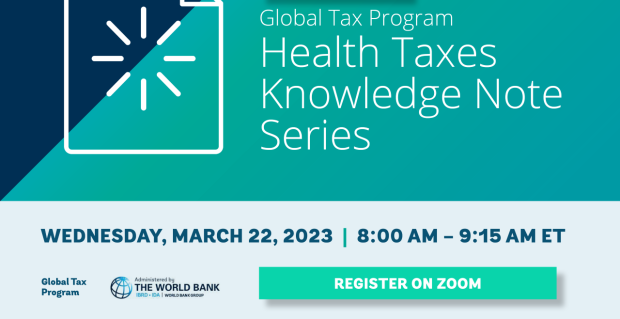This Factsheet is first of the Knowledge Note Series of the World Bank’s Global Tax Program. The purpose of this note is to provide policy makers an overview of an economic framework for setting health taxes, with a specific focus on taxing tobacco, alcoholic drinks, and sugar-sweetened beverages (SSBs).
SUMMARY
More than 11 million preventable premature deaths occur each year due to consumption of tobacco, alcohol, and diets high in sugar-sweetened beverages (SSBs). (Institute of Health Metrics, 2019).
Health taxes are excise taxes imposed on product that have a negative public health impact, and include taxes on tobacco, alcoholic drinks, and sugar-sweetened beverages (SSBs). In their own right, health taxes are one of the most cost-effective policy measures for reducing consumption of these products and associated mortality and morbidity. Relatedly, the economic framework for health taxes has three goals, and highlights their special nature: to reduce externalities related to consumption, e.g., publicly funded healthcare costs, traffic accidents, and secondhand smoke; to cut “internalities” related to individual harm, including death and disability—as well as to generate revenue to meet fiscal needs.
Health tax design and tax administration are critical to achieving positive health and revenue impact. To do so requires tax design that leverages economic principles to make good use of the special nature of health taxes, build effectively on countries’ existing tax environments, and account for administrative capacities. Countries can support both health and revenue outcomes through targeted actions that include diagnostics, modeling, strategy and systems development, monitoring and evaluation, and capacity enhancement.

